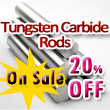Carbide Bits Vs. High Speed Steel
Drill bits are cylindrical tools placed in drills to create holes. The spinning drill bit bores holes in everything from metal to wood, plastic and synthetic and hybrid materials. Numerous types of drill bits exist, including carbide and high speed steel. The differences between carbide tipped and high-speed steel bits lie in the qualities of their materials, which makes each ideally suited to different applications.
1.CementedCarbide Bits
Carbide drill bits are made from carbide, a material comprised of carbon and one or more heavy metals. Tungsten is the most commonly used heavy metal component of carbide bits. Various types of carbide bits exist, including those comprised completely of carbide and those with carbide tips. Carbide-tipped bits are made from a material such as steel and tipped with carbide. According to Industrial Tool Sharpening, carbide-tipped bits are more durable and less expensive than bits made entirely from carbide.
2.High Speed Steel Bits
High Speed Steel drill bits contain an especially hard and durable type of steel designed for heavy drilling applications. Various grades of high speed steel exist. These grades identify the heaviness of the steel type used in the drill bit and its brittleness. The materials used in HSS steel bits exhibit a strong resistance to wear. Thus, HSS bits last for significantly longer than those made from materials such as carbon steel and stainless steel.
3. Qualities
Cemented Carbide bits exhibit resistance to high temperatures than HSS bits, especially important in drills that rotate at extremely high speeds and generate great heat. According to a fact sheet published by the University of Idaho, carbide bits can safely run two to three times faster than HSS bits. However, carbide bits are more brittle than HSS bits. If a carbide bit comes into contact with an unexpectedly hard material, it quickly and easily chips. While both HSS and carbide prove long lasting, HSS usually lasts longer.
4. Applications
The qualities of drill bits help determine their application. The high-speed ability of carbide and carbide tipped bits makes them suited to time-sensitive operations such as industrial drilling. The relatively high cost of these bits may put them out of the price range of casual tool owners. High speed steel bits work well with other metals as well as wood and plastics. Carbide bits work well with plastic, metal or wood, though manufacturers usually design the hardness of these bits for a specific application. For instance, a carbide bit designed for woodworking may chip or shatter if it comes into contact with metal.






 sales@chinatungsten.com
sales@chinatungsten.com